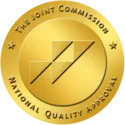Men and women can both suffer from addiction, but they often benefit from different approaches to treatment. Programs that are gender-specific can be more effective, and men can see real benefits when a treatment program is designed just for them. It can make a huge difference in the outcome of a program and the degree to which it can help a man recover from addiction.
At our men’s-only addiction recovery program in Nampa, Idaho, we work to support men healing from addiction and designing new lives for themselves.
Why is Gender-Specific Addiction Treatment Important?

Addiction doesn’t discriminate between genders. While everyone can struggle with substance abuse disorders, recovery programs can be more effective when focused on the needs of one gender. Men can see real benefits when an addiction treatment program is tailored to them.
Potential benefits may include:
- A sense of camaraderie, brotherhood, and peer support with other men going through similar struggles
- A supportive environment for opening up
- A sense of safety in sharing personal experiences and feelings
- Ability to participate in group therapy sessions with similar people
- Support and understanding around mental health conditions
- Validation in their experience
These benefits can inspire hope for a better future and motivate men to pursue recovery, showing that positive change is possible. These programs can provide the care and support that men need to overcome addiction and build a foundation for long-term recovery.
Sadly, there is a strong stigma that men are “weak” if they ask for help with addiction or mental health disorders. The societal “norm” is that men are supposed to be strong and tough, and any admission of needing help is translated to weakness. If a man reaches out for help to a friend or family member (who’s another man) they also jump on that same perception.
This can easily cause men to deny the presence of issues, and avoid discussing problems. Men often think it’s better to suffer in silence. Fear of judgment often prevents men from reaching out to a loved one for help. This can make it that much harder for a man to get the help he needs.
Men are typically more likely to suffer from addiction than women, which means they represent a larger population in treatment settings. Alcohol addiction is especially prevalent among men in treatment, with research conducted by NIAA in 2013 showing that adult men struggled with alcohol use disorders at twice the rate of adult women. Men are also more likely to relapse and drop out of treatment early, which means they are more likely to attend treatment more than once. All of these factors lead to men representing a larger number of the population in treatment facilities.
Due to the surrounding stigma, men often do not feel comfortable discussing issues around substance abuse or behavioral health. This can make it extremely difficult for treatment specialists to fully understand their issues and situation. Adventure therapy and other treatment modalities can be effective for addressing various mental health conditions in men, including depression, anxiety, and PTSD.
Many men feel threatened by the consistent need to share and express emotion during addiction treatment. The challenge of overcoming the expectation to be strong and self-reliant can be an ongoing challenge throughout treatment. But the individualized care of addiction-focused therapy and receiving encouragement from other men can help break down walls. Support from their families can also play a crucial role in helping men navigate these social challenges and reduce the impact of stigma.
The bodily composition of people born male allows them to process substances much more effectively (and faster) than people born as female. For this reason, men don’t typically experience the negative side effects of substance abuse until later in their drug use.
Patterns of drug use among men often show a progression from initial experimentation to more frequent use, sometimes involving multiple substances. This also means that men will feel less reluctant to move on to other substances or even mix substances. Men are also more likely to engage in peer pressure tactics to try addictive substances, and are more likely to succumb to peer pressure than women. This causes men to start experimenting with drug and alcohol use at an earlier age.
Services at a Men’s Addiction Treatment Center
When men come to a treatment center that specializes in men’s addiction, they can expect to receive comprehensive care tailored to your needs. This may include:

Medically assisted detox is the act of ridding the person’s body of addictive substances under medical supervision. Treatment professionals conduct a thorough initial assessment to take note of the presence of any co-occurring disorders. If someone shows adverse health effects during the detox process, they can receive immediate attention and (hopefully) avoid the worst possible health effects of detox. Integration of mental health treatment is also considered during this phase.
After detox, men will participate in individual therapy sessions. These sessions can help men understand the underlying causes of their addiction and develop tools to cope with triggers and cravings in healthy ways. Individual therapy can include special forms of counseling, such as cognitive behavioral therapy. This particular modality of therapy focuses on identifying and stopping patterns of negative thought. It is an action-focused modality of therapy that may feel more comfortable to men hesitant to go to therapy and “just talk about feelings.”
Many men’s addiction treatment programs also offer family therapy. This type of treatment can help heal relationships that have been damaged by addiction. It can help men learn how to effectively communicate with family members, as well as discuss their substance abuse issues (and the effects it’s had on their families) in a safe and neutral environment.
Group therapy helps establish a system of support and accountability within the recovery process. Sessions are facilitated by a qualified mental health professional and can be educational or focused on discussion. Men are supported in their efforts by the other men of the group and are encouraged to be honest, especially when addressing trauma. Men in addiction treatment will be surrounded by others who understand and can relate to their struggles.
Once men have completed a men’s addiction treatment program, they can participate in aftercare treatment to solidify their progress. Aftercare typically includes continued therapy and support groups. If necessary, they may transfer to a less intense treatment program or transition to a sober living home.
How to Ask For Help
If you are a man struggling with addiction, it can be hard to reach out for help. You may feel like you need to tough it out on your own or that asking for help is a sign of weakness. But asking for help is actually an act of incredible strength.
Addiction can affect anyone, regardless of their age or background. It is not a sign that someone is weak or of low moral character. Substance abuse treatment is designed to help people solve the problem of addiction, not to judge or condemn them as “broken.” Choosing to seek help and be honest about struggling with addiction requires honesty and bravery, and is (in a way) taking responsibility for your addiction before it hurts people in your life that you love.
If you are ready to seek help for addiction, there are a few ways to get started:
- Talk to your doctor: Your primary care physician can provide referrals to men’s rehab programs or local resources.
- Reach out to a men’s support group: There are many men’s support groups available online and in communities across the country. These groups can provide peer support, and may be able to recommend a treatment provider that has helped others.
- Reach out to a treatment center: You can contact a treatment center directly by calling their admissions department. These calls are confidential, and you are not immediately obligated to attend treatment after calling.
Men’s Addiction Treatment at Eagle Creek Ranch Recovery
Eagle Creek Ranch Recovery offers an addiction treatment center located in the beautiful mountains of Idaho. Our men’s-only programs are designed specifically for men dealing with addiction and mental health issues. As part of our targeted services, we provide men’s residential treatment to support men through every stage of their recovery. Contact us today to learn more about how we can help.

Clinical Director
Kendall Maloof is the clinical director at Eagle Creek Ranch Recovery. She is a licensed marriage and family therapist and has held multiple leadership roles before settling here at Eagle Creek Ranch Recovery. Kendall received her master’s degree in marriage and family therapy from the Chicago School of Professional Psychology in 2016. Her career in mental and behavioral health began in 2014 when she took up internships in both the nonprofit and for profit sectors. She interned at multiple reputable companies, such as The Living Success Center and 449 Recovery in California.
In 2019, Kendall became the clinical director of Sunsets Recovery for Woman, a dual diagnosis program in southern California. Kendall is a natural leader. She has an incredible ability to problem solve and stay calm in any situation. Kendall never fails to show up when she is needed, and her calm demeanor makes her team and clients feel at ease. Eagle Creek Ranch Recovery is proud to have Kendall as our clinical director.



